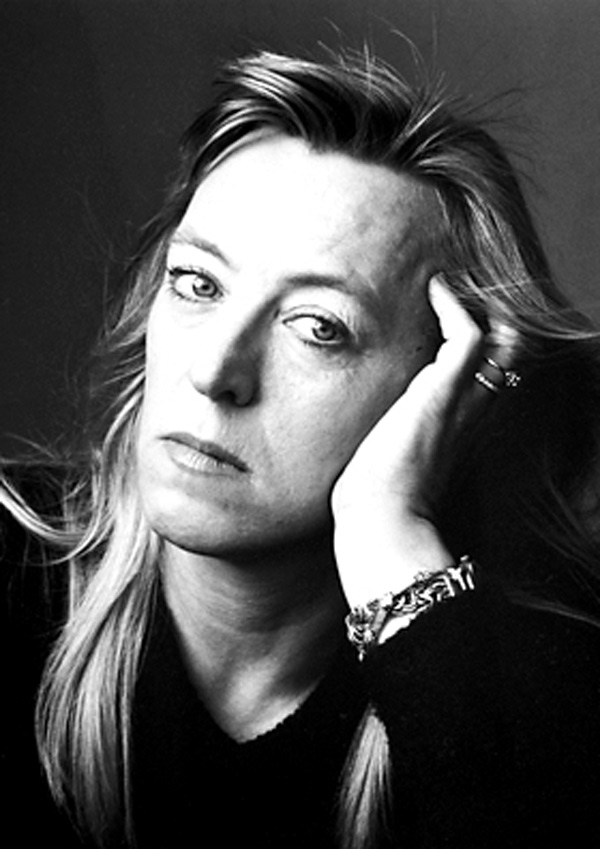The views expressed in our content reflect individual perspectives and do not represent the authoritative views of the Baha'i Faith.
The Nobel Peace Prize normally honors one individual—but shouldn’t it recognize the efforts of groups more often?
Many people have begun to ask that question, especially when the Nobel Committee decides to single out one person who has worked with and among many others in the cause of peace.
Since its beginning in 1901, the world’s most prestigious honor, the Nobel Peace Prize has gone to 104 individuals and 23 organizations—which leads to the strange conclusion that individuals have done four times more for world peace than groups of people have. Most historians and sociologists reject that old notion, sometimes called “the great man theory of history,” which holds that individuals drive human progress, not groups and organizations.

Jody Williams
Here’s an example: a dedicated activist named Jody Williams and I worked together with an NGO called Medical Aid for El Salvador during the war in El Salvador in the 1980s, and the devastation we witnessed there impelled her to work for the global elimination of landmines. In 1997, Jody and the anti-landmine organization she helped establish won the Nobel Peace Prize.
Jody shared the Peace Prize with a coalition of organizations she and others put together in the early 1990s. Called The International Campaign to Ban Landmines (ICBL), it created a loose assemblage of six NGOs and social justice organizations who wanted to find a way to free the world from the horrible effects of anti-personnel mines. The six organizations: the Vietnam Veterans of America Foundation; Human Rights Watch; Physicians for Human Rights; Germany’s Medico International; Handicap International; and the Mines Advisory Group, all agreed to work together in a unified effort to ban landmines, which target soldiers but most often kill and maim civilians, sometimes long after wars are over.
That broad coalition of people and organizations, initially spearheaded by the efforts of Bobby Muller, the head of Vietnam Veterans of America, had one brilliant question: what would happen if we came up with an ad hoc international treaty to ban landmines—ourselves?
No one had ever done that before. In the past, international treaties were the sole province of nations and their leaders, or perhaps the United Nations. The ICBL coalition was the first group of activists and NGOs who ever tried to create a grassroots treaty among nations, and their one bold, brilliant, unprecedented idea worked. The power of all those advocacy groups, together, made a difference.
After a great deal of effort, most of the countries in the world—162 of them to date—signed the treaty. (Sadly, the three major manufacturers and military users of landmines—China, Russia and the United States—have not yet signed.) Called The Convention on the Prohibition of the Use, Stockpiling, Production and Transfer of Anti-Personnel Mines and on their Destruction, or just The Ottawa Treaty, the unique international agreement attracted the support of individuals like Princess Diana and Canadian Cabinet Minister Lloyd Axworthy, but it also galvanized thousands of regular people—world citizens who marched, wrote letters, got their churches and faith groups involved, and generated intense, concerted political pressure on their countries to sign the Treaty.
So when Jody Williams was named as the co-winner of the Nobel Peace Prize along with ICBL, it created some controversy. Many people believed the entire prize should have gone to the whole coalition of organizations instead. I don’t have a personal opinion on this particular issue, since I wasn’t there in all the meetings, but it does raise a much larger issue—why do we honor one person when many people did the work? Sure, most organizations have leaders, but should the leaders get all the credit, or should the organization share the recognition?
Our societies tend to single out individuals for this kind of recognition, as we all know. But what do you think? Should group efforts be recognized, or should we continue honoring individuals?
The Baha’i teachings, I suspect, might recommend that we turn our attention more towards the unifying effects of the group:
Today is the day of union and this age is the age of harmony in the world of existence. “Verily, God loveth those who are working in his path in groups, for they are a solid foundation.” Consider ye that he says “in groups”, united and bound together, supporting one another. “To work”, mentioned in this holy verse, does not mean, in this greatest age, to perform it with swords, spears, shafts and arrows, but rather with sincere intentions, good designs, useful advices, divine moralities, beautiful actions, spiritual qualities, educating the public, guiding the souls of mankind, diffusing spiritual fragrances, explaining divine illustrations, showing convincing proofs and doing charitable deeds. When the holy souls, through the angelic power, will arise to show forth these celestial characteristics, establishing a band of harmony, each of these souls shall be regarded as one thousand persons and the waves of this greatest ocean shall be considered as the army of the hosts of the Supreme Concourse.
What a great blessing it is that when the torrents, streams, currents, tides and drops are all gathered in one place, they will form a great ocean and the real harmony shall overcome and reign in such a manner that all the rules, laws, distinctions and differences of the imaginations of these souls shall disappear and vanish like little drops and shall be submerged in the ocean of spiritual unity. – Abdu’l-Baha, Star of the West, Volume 4, p. 36.
Hardly anyone does anything alone, without the help of others.
That brings us, though, to the question of individualism—the idea that the highest moral worth can only exist at an individual level—which we’ll examine in the next essay in this series.

















Comments
Sign in or create an account
Continue with Facebookor